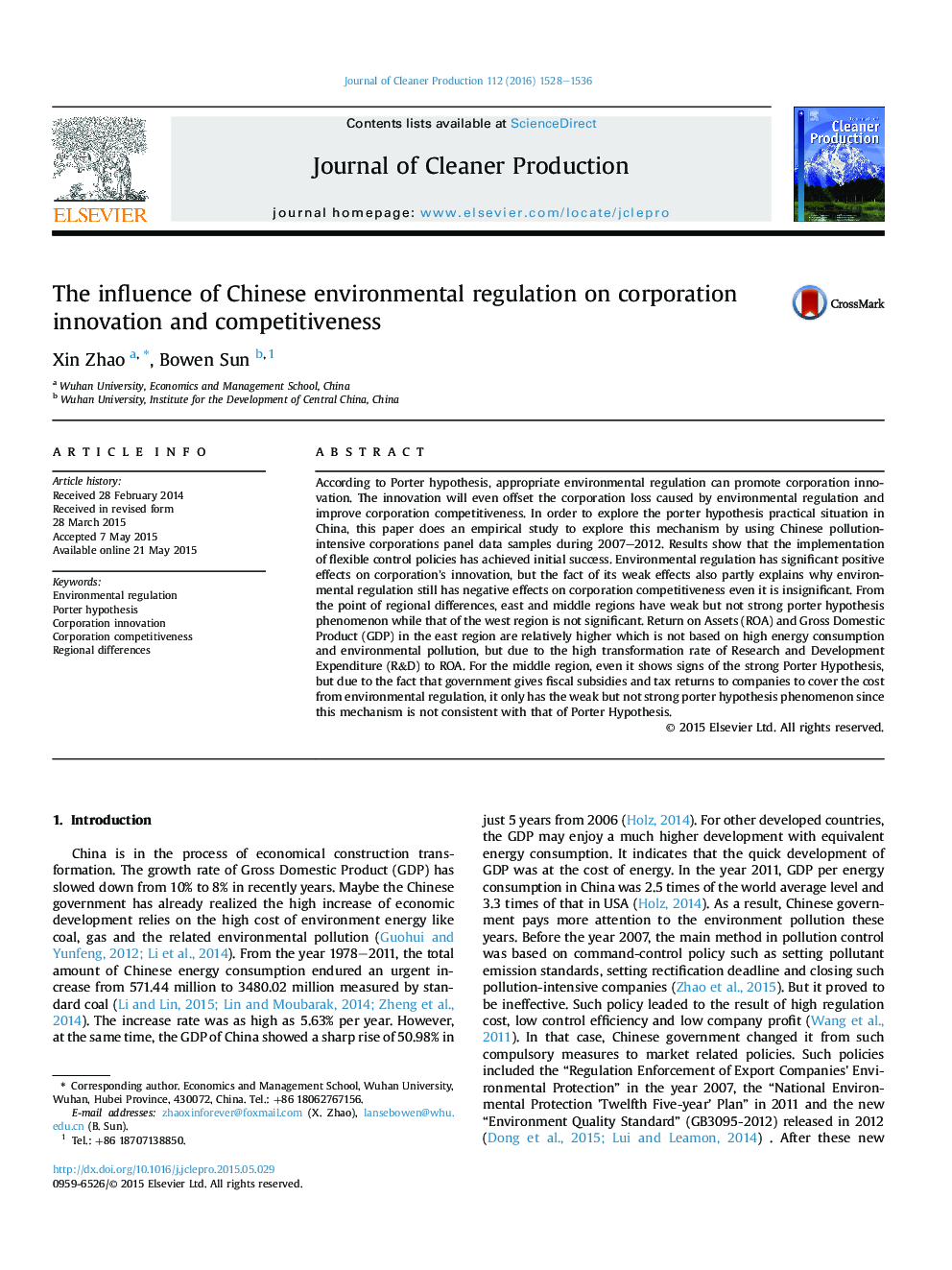| Article ID | Journal | Published Year | Pages | File Type |
|---|---|---|---|---|
| 1744325 | Journal of Cleaner Production | 2016 | 9 Pages |
According to Porter hypothesis, appropriate environmental regulation can promote corporation innovation. The innovation will even offset the corporation loss caused by environmental regulation and improve corporation competitiveness. In order to explore the porter hypothesis practical situation in China, this paper does an empirical study to explore this mechanism by using Chinese pollution-intensive corporations panel data samples during 2007–2012. Results show that the implementation of flexible control policies has achieved initial success. Environmental regulation has significant positive effects on corporation's innovation, but the fact of its weak effects also partly explains why environmental regulation still has negative effects on corporation competitiveness even it is insignificant. From the point of regional differences, east and middle regions have weak but not strong porter hypothesis phenomenon while that of the west region is not significant. Return on Assets (ROA) and Gross Domestic Product (GDP) in the east region are relatively higher which is not based on high energy consumption and environmental pollution, but due to the high transformation rate of Research and Development Expenditure (R&D) to ROA. For the middle region, even it shows signs of the strong Porter Hypothesis, but due to the fact that government gives fiscal subsidies and tax returns to companies to cover the cost from environmental regulation, it only has the weak but not strong porter hypothesis phenomenon since this mechanism is not consistent with that of Porter Hypothesis.
